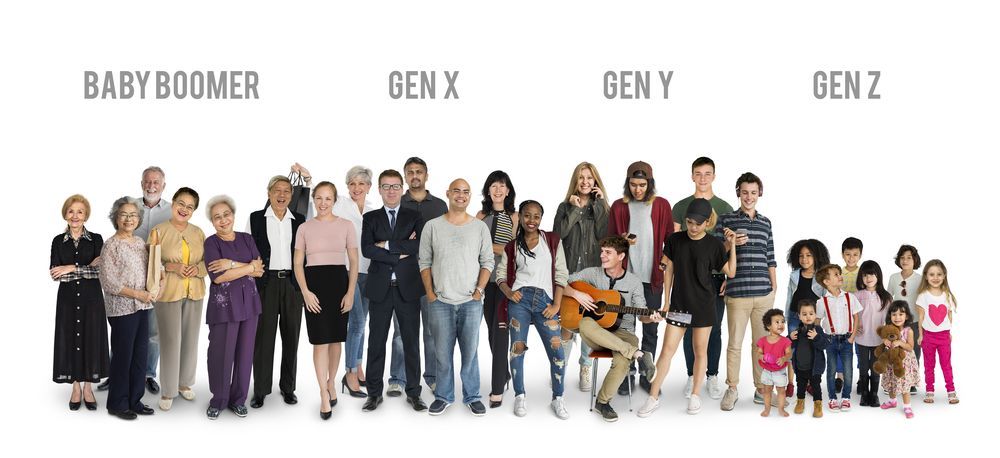Master the Art of Negotiation: Secrets to Getting a Better Deal on a Car
By Marcela De Vivo • February 13, 2025
Negotiation may be a fundamental aspect of human interaction, present in everything from international diplomacy to daily shopping experiences. At its heart, negotiation may be about reaching an agreement that satisfies the diverse interests of the parties involved. However, what often goes overlooked could be the underlying psychology that informs and shapes our negotiation strategies and outcomes. Understanding this psychology is not just an academic exercise; it's a crucial component in becoming a truly effective negotiator.
The Role of Cognitive Biases
Cognitive biases are systematic patterns of deviation from norm or rationality in judgment. This occurs when individuals rely too heavily on the first piece of information they receive. In negotiations, the initial offer often serves as an anchor, impacting all subsequent discussions and potentially skewing the outcome.
Negotiators tend to favor information that confirms their existing beliefs or hypotheses. Being aware of this may help in preparing arguments that not only support your case but also address the counterparty’s perspective.
People prefer to avoid losses rather than acquiring equivalent gains. Recognizing this emotional influence may be pivotal in framing negotiation terms that minimize perceived losses.
Emotional Intelligence and Rapport
Building rapport and demonstrating emotional intelligence (EQ) are key to successful negotiations. They involve recognizing one’s own emotional state as well as that of the other party.
By actively listening and showing understanding of the other party’s concerns and motivations, negotiators may build trust and find mutually beneficial solutions. Keeping one’s emotions in check prevents adverse reactions that could derail the negotiations. Exhibiting calmness and control may influence the overall tone of the dialogue.
Psychological Tactics in Negotiation
Certain psychological tactics may be employed to steer negotiations towards a favorable outcome.
Starting with a high request which could be likely to be rejected, followed by a smaller, more reasonable one, increases the chances of acceptance. Conversely, securing agreement to a small request increases the likelihood of agreement to a larger one later on.
Mirroring the other party’s behavior and language may build empathy, while labeling emotions could help in de-escalating tensions and validating the other’s viewpoints.
The Importance of Preparation
In-depth preparation is crucial to understanding the psychological underpinnings of the negotiation process. Identifying the underlying interests of all parties helps in crafting proposals that may appeal to their fundamental needs. Anticipating possible responses and preparing for different negotiation turns may reduce the element of surprise and allow for strategic adjustments.
Negotiation could not be just a business skill but a necessary component of effective communication in various aspects of life. By delving into the psychology of negotiation, individuals may develop strategies that are not only logically sound but also emotionally intelligent. This dual approach may lead to more successful and satisfying negotiations for all parties involved.
Understanding Psychological Triggers in Sales
Sales may be an arena rich with psychological triggers. Salespeople, skilled in the art of persuasion, often leverage fundamental aspects of human psychology to sway customers towards making a purchase. It's essential to understand these tactics not to discredit the practice of selling, but to recognize the interplay of human psychology in sales transactions.
Reciprocity
One of the most powerful psychological triggers in sales may be the principle of reciprocity. This principle is based on the idea that people feel obligated to return a favor. Sales professionals may offer free samples, trial periods, or additional benefits to potential customers knowing that this act might create a feeling of indebtedness, making the customer more likely to make a purchase.
As a customer, to counter this trigger, acknowledge the tactic for what it may be. It's okay to accept free things, but separate the feeling of obligation from your purchasing decision. Evaluate the product on its own merits, not on the feelings of reciprocation the salesperson might be trying to invoke.
Scarcity and Urgency
Scarcity may be another psychological trigger that salespeople use effectively. The notion that something may be in limited supply or available for a limited time may create a sense of urgency, which could prompt customers to act quickly and decisively.
To resist this tactic, take a moment to consider whether your interest may be due to the product's value or the fear of missing out. Check if the scarcity may be genuine by researching the product availability elsewhere. Remind yourself that rushed decisions are often regretted, taking time to think may lead to better decision-making.
Social Proof
The concept of social proof suggests that people look to others when determining what may be correct. Sales professionals often cite testimonials, customer reviews, and celebrity endorsements to tap into this psychological trigger. Knowing that others are satisfied with a product could be a compelling motivator to purchase.
To navigate this trigger, seek independent reviews and sources of information. Don't just rely on the examples that the salesperson presents. Look for honest feedback from a variety of customers to get a well-rounded view of the product.
Authority
Salespeople may establish their expertise or authority in the field to gain trust and convince customers of the value of their offering. By demonstrating knowledge and credibility, they are more likely to persuade someone to buy.
Customers should differentiate between genuine expertise and perceived authority. It's beneficial to do your research and ask questions that test the salesperson's knowledge. Don't let titles or appearances sway you without evidence of true substance and expertise.

Emotional Triggers and Power Dynamics in Auto Dealerships
When it comes to understanding the psychology behind pricing, particularly in the context of auto dealerships, it’s perhaps essential to grasp the emotional triggers and power dynamics at play. These factors deeply influence how potential buyers perceive value and make decisions. In crafting an approach on how to deal with auto dealers, recognizing these psychological elements may be a game changer in negotiations.
Perceived Value vs. Actual Cost: Consumers often equate price with quality. A higher price may create the impression of a more luxurious, reliable vehicle, triggering a psychological response that equates cost with worth. In contrast, a lower price might signal a bargain but could also raise doubts about the car's quality or features.
Anchoring Effect: The first price presented by the dealer sets the stage for all subsequent price negotiations. This initial figure serves as the "anchor," and it's common for the buyer's counter-offers and the final price to hover around this baseline rather than the actual value or invoice price of the vehicle. Skilled dealers use this to their advantage by starting with a higher price point.
Decoy Pricing: Sometimes, dealers may present a less attractive option at a similar price point to the car you are interested in, making your preferred choice seem like a better deal. This tactic leverages the contrast effect, where the inferior option serves as a decoy, enhancing the appeal of the vehicle you're inclined to purchase.
Payment Framing: Dealers often emphasize monthly payment amounts rather than the total price of the vehicle. By breaking down the cost into seemingly manageable monthly fees, buyers are less likely to focus on the overall expense, which may include additional interest rates and extended payment periods.
False Urgency: Creating a sense of urgency with statements like "This offer may only valid until the end of the day" can trigger a fear of missing out (FOMO). This tactic pressures buyers to make a decision quickly without fully considering if the deal aligns with their needs and budget.
Social Proof and Testimonials: Dealers may showcase customer testimonials or high sales figures for a particular model to imply that it's a popular and thus a wise choice. This use of social proof can sway buyers by playing on their desire to conform to what appears to be the majority preference.
Power Dynamics and Body Language: The power dynamic in a dealership often tilts in favor of the seller, who may be usually more informed about the pricing strategies and negotiation levers. However, buyers can rebalance the power by displaying confident body language, asking informed questions, and showing a willingness to walk away if the deal doesn’t meet their expectations.
Negotiation Tactics for Car Buying Success
When approaching the culmination of a car purchase negotiation, several key strategies come into play to ensure both parties reach a satisfactory agreement. Here's a look at the nuanced dance of counteroffers, concessions, and closing that unfold during the final stages of negotiation.
Refining the Counteroffer: The last leg of negotiations may often be characterized by a series of counteroffers. These are critical as they fine-tune the terms of the deal to approach the sweet spot between the buyer's and seller's expectations. Making a counteroffer should be based on thorough market research and a clear understanding of the car's value. Assertiveness at this stage is vital; it shows the dealer that you are informed and serious about reaching a reasonable price.
Strategic Concessions: Concessions are part and parcel of successful negotiations. Knowing when and what to concede can be the key to unlocking a deal that works for both parties. Always prioritize your concessions, giving away less critical items first and saving crucial points for last. This way, you can strike a balance between flexibility and steadfastness without compromising your primary goals.
The Power of Patience: One of the most effective 'car buying hacks' lies in the power of patience. Rushing to close the deal can often work against you. Exhibiting patience shows the dealer that you're not desperate to buy, which can shift the power dynamic in your favor and lead to better terms.
Closing with Confidence: As negotiations draw near completion, signaling a readiness to finalize can work to your advantage, provided you convey confidence and willingness to walk away if the deal doesn't meet your terms. This may be your last opportunity to review the terms, ensure all your conditions have been met, and that there are no hidden fees or surprises.
Making the Agreement Official: Documentation and Delivery
Once both parties have verbally agreed upon the terms, the next step may perhaps be to make the agreement official with the necessary paperwork. This includes the bill of sale, warranty documents, and financing agreements if applicable.
Reviewing the Paperwork: Never rush through the paperwork. Take your time to thoroughly review every document to ensure the terms match what was agreed upon during negotiations. Pay special attention to the final sale price, interest rates, payment schedule, warranty details, and any additional charges.
Dotting the I's and Crossing the T's: Prior to signing, clarify any vague clauses or fine print. It's not uncommon for additional fees or terms to be buried in the contract. If something isn't clear or doesn't seem right, don't hesitate to ask for explanations or adjustments.
Leveraging 'Car Buying Hacks' for Masterful Deal Closure
End-of-Month Timing: Timing your purchase towards the end of the month can be advantageous. Sales teams often have quotas to meet, and making a purchase when they're likely to be more motivated to sell can yield price reductions or additional perks.
Pre-Approved Financing: Come to the dealership with pre-approved financing. This not only strengthens your negotiating position but also saves you from potentially higher interest rates offered by dealer financing.
Out-the-Door Price Focus: When discussing price, always negotiate based on the 'out-the-door' cost rather than the monthly payment. This gives you a clear picture of the total amount you will be paying and helps avoid the pitfalls of stretched-out payment plans that cost more in the long run.
The final stages of car purchase negotiations are where finesse, patience, and strategic thinking converge to seal the deal. By refining counteroffers, understanding the importance of concession strategy, and leveraging timing and financial preparedness, you can transition from the negotiation process to ownership smoothly. Ensure all terms are transparent and documented to avoid any post-purchase surprises, and remember that the best deal may be one where both parties feel they've been treated fairly and with respect.
HOW MUCH IS MY CAR WORTH?













